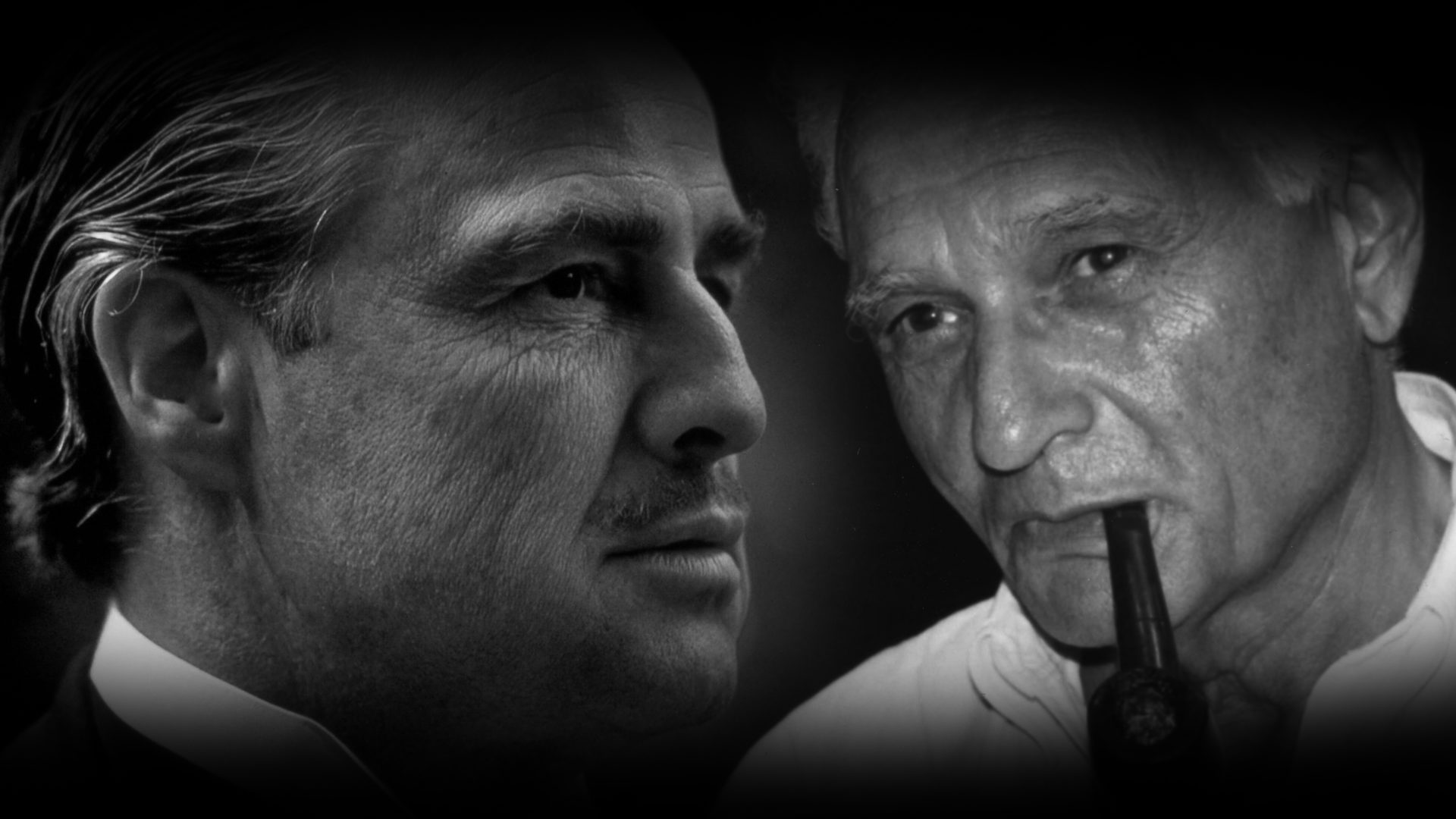A long time ago, one of my professors told me a joke that went something like this: “What do you get when the Godfather meets [the deconstructionist] Jacques Derrida? An offer you can’t understand!”
I immediately recalled this line when I read the interview Philippe-Joseph Salazar, a former student of Derrida’s and now a professor of rhetoric at the University of Cape Town in South Africa, gave to the Chronicle Review. Salazar, the author of Words are Weapons: Inside ISIS’s Rhetoric of Terror, a book researched in the frontlines of Middle Eastern mayhem, suggests that the West is losing to ISIS fighters because the latter are able to read “complex” texts, whereas Westerners counter with simple-minded videos that have no impact whatsoever. Salazar attributes our losing streak to the decline of the humanities and to reducing the mission of Western universities to getting jobs. “We have lost sense of our roots,” he says in response to what we should do. “Those young men during the Spanish Civil War who went to fight on the Republican side had Virgil, Homer, they had poetry in their pockets. Their humanities enabled them to fight for a noble cause.”
With such logic, Salazar thinks that if we could reach ISIS recruits like the Australian math genius Jihadi Jake and give them, for example, a good dose of the history of religions, we might just be able to change their minds and keep them in the fold. Moreover, Salazar proposes we negotiate with ISIS and let the Caliphate be.
One doesn’t know how to begin addressing such a stance, especially when we know that reading in the Muslim world is an almost non-existing practice and that the only refrain heard from one end of the Islamic world to another are the unexamined recitals of Quranic verses and select quotations from the sayings and doings of the Prophet (hadith). To say that this behavior makes ISIS fighters humanists is, to put it simply, a serious misreading of the condition of the Muslim world.
At the very least, Salazar could have checked books like Joel L. Kramer’s Humanism in the Renaissance of Islam, or the article on which it is based, “Humanism in the Renaissance of Islam: A Preliminary Study,” published in the Journal of the American Oriental Society. Like other scholars, Kramer attributes the rise of humanist culture in the Iraq of the Buyids or Buwayhid era (9th to 10th centuries) first to the fusion of Jewish and Christians elements with Arab traditions; then to the use of legal, administrative and artistic systems of the nations conquered by Muslims; and, finally, to the translation and incorporation of Greek works. “In all three stages the legacy of Hellenism and of late Graeco-Roman antiquity plays a major, if not paramount, role. . . . The heartland of the area conquered by Islam was to a great extent coterminous with the orbit of Hellenistic successor states and the Graeco-Roman civilization that arose in their wake. And the ‘Renaissance of Islam’ was a conscious continuation of the cultural legacy of the Hellenistic and Graeco-Roman epoch.”
Arguing against many who insisted that the Arab/Muslim mind didn’t quite get the Greek humanist heritage, Kramer showed that Muslim elites (at least) shared “the salient features of humanism,” such as the “conception of the common kinship and unity of mankind; the adoption of the ancient classics as an educational and cultural ideal in the formation of mind and character (paideia); and humaneness, or love of mankind (philanthrōphia).”
A spirit of secularism and rational thinking did emerge and reached its apogee in the last part of the tenth century. Muslims learned from Christians and members of all faiths, including pagans. Thinkers like Ibn al-Muqaffa`, Abu `Isa ibn al-Warraq, Ibn al-Rawandi, and the physician Abu Bakr al-Razi questioned the premsises of religion, while other philosophers (falasifa) were more accommodating. They all considered Greek knowledge to be their common heritage, not alien to Arab or Muslim culture. A philosopher like Yaqub ibn Ishaq al-Kindi divided the sciences into human science (al-`ilm al-insani) and divine science (al-`ilm al-ilahi). The latter required no major intellectual effort.
We could talk about a culture of individualism during the Buyid era, one marked by upward mobility in the absence of genealogical legitimation. (The Buyids had no genealogical claim to the prophet.) In Baghdad, a city of half-a-million people, the cultural elites enjoyed a cosmopolitan environment, although they were often forced to dissimulate it because of the price they could pay in an orthodox society. (This pressure to conform has informed architectural and sartorial choices, such as the building of walled houses and wearing veils).
Philosophy was for the elites, anyway—religion for the masses. Thus a libertine culture—including drinking, carousing, dissipation, rapture over singing boys and girls (tarab), and unconventional sexual relations (a threesome is reported)—coexisted precariously within conservative social mores. In this system, philosophers, rulers, and, to some extant, courtiers were the preferred social types. A philosophical life, untroubled by routine aggravations, was deemed ideal, even though it could expose philosophers to persecution or worse, as in the case of Socrates, death. Still, happiness (as-sa`ada) could only be obtained through the use of reason. Friendship was also highly prized.
One could say that these intellectuals lived (as they often do) in a bubble. The fate of most people was marked by famine, fear, antagonisms of all sorts, rootlessness, vagabondage, burdensome taxation to raise funds for armies and social control, and degraded infrastructure (such as canals). It was at this time that the followers of Ahmad ibn Hanbal (the founder of an orthodox Sunni school that governs Saudi Arabia today) started opposing all innovation, heralding the end of this golden age of openness and tolerance and bringing an end to the efflorescence of Baghdad.
The ISIS caliphate today is not striving to bring back the culture of humanism championed by the philosophers and poets of medieval Baghdad. On the contrary, its rise reflects the fanatical rejection of openness to world cultures and the sorry state of the Muslim Arab world today. When the tiny nation of Greece translates five times as many books as the entire Arab world combined does, or that Spain alone translates in one single year more books than the Arabs have done in an entire millennium, one can’t seriously imply that ISIS jihadis are better humanists than Westerners. About four years ago, an Arab foundation reported that the Arab individual reads, on average, a quarter of a page a year, whereas Arab children are limitd to a mere “six minutes.”
I really don’t see how one could say that ISIS has a better appreciation of the humanities and that they are some sort of literary superheroes compared to the far better read and educated Westerners.
The Muslims of Iraq developed a so-called “golden age” in the 9th and 10th centuries because they claimed the Greek heritage (itself borrowed from neighboring civilizations like Egypt and Canaan) as their own. Today, many Muslims, even if thoroughly Westernized in every practical way, are still trying hard to pretend that Islam has its own specificity which, if recouped, could make them stronger again. This misguided belief continues to wreak havoc on our world.
To be truly great again, Muslims must, once again, learn from their ancestors who relied on Greek, Persian, and Hindu knowledge to develop their societies. They could start by adopting Western modes of inquiry, not rely on mimicry, rote learning, and delusions of greatness based on emotion and filial piety.
There is only one human civilization, and Muslims must try to be active agents in it.





Comments are moderated by the editor and may not appear on this discussion until they have been reviewed and deemed appropriate for posting. All information collected is handled in a manner consistent with our privacy policy.